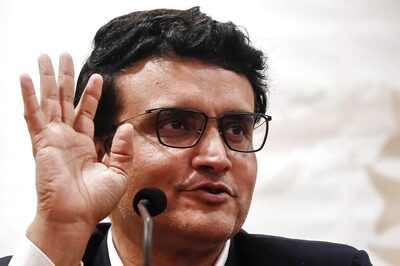
views
New York: After accusing Pakistan's ISI of supporting the Haqqani terror network, the Obama administration is now relying on the spy agency to help it organise and begin 'reconciliation talks' aimed at ending the war in Afghanistan, a media report said.
"The revamped approach, which Secretary of State Hillary Rodham Clinton called 'Fight, Talk, Build' combines continued American air and ground strikes against the Haqqani network and the Taliban with an insistence that Pakistan's ISI get them to the negotiating table," the 'New York Times' daily said.
The new strategy has emerged as an option in the wake of the increased attacks against Americans in Kabul, including the suicide attack on Saturday that killed as many as 10 Americans and in which the Haqqanis are suspected.
"It is the latest effort at brokering a deal with militants before the last of 33,000 American troops prepare to pull out of Afghanistan by September, and comes as early hopes in the White House about having the outlines of a deal in time for a multinational conference December 5 in Bonn, Germany, have been all but abandoned," the report said.
However, a few elements of the ISI "see little advantage" in forcing those negotiations, as they see insurgents as their best bet for maintaining influence in Afghanistan once the US reduces its presence there.
The new strategy has been met with deep skepticism by some in the Obama administration, partly because the Pakistani government has developed its own strategy at odds with Clinton's.
A senior American official summarised the Pakistani position as 'Cease-fire, Talk, Wait for the Americans to Leave'.
"In short, the US is in the position of having to rely heavily on the ISI to help broker a deal with the same group of militants that leaders in Washington say the spy agency is financing and supporting," the NYT report added.
It quoted former top Obama White House aide on Pakistan and Afghanistan Shamila Chaudhary as saying that Pakistanis see the "contradictions in the American approach. The big question for the administration is, What can the Pakistanis actually deliver? Pakistan is holding its cards very closely."
The US intelligence officials have also deepened an investigation into the role, if any, the Haqqani network played in the bombing in Kabul on Saturday.
Several current and former American officials say the US has tried this "bomb-them-to-the-bargaining-table" approach before but it resulted in little so far with the Afghan Taliban.
"I don't think anyone expects Secretary Clinton's visit (to Kabul and Islamabad) to produce reconciliation," former CIA officer Bruce Riedel said.
The deterioration of US-Pak relations is likely to continue while "as an incentive," the US has offered Pakistan a prominent role in reconciliation talks, American officials have warned that they will take unilateral action if negotiations fail, the report said.
Admiral Mike Mullen, just before retiring last month as chairman of the Joint Chiefs of Staff, had said the Haqqani network was a veritable arm of the Pakistani spy service.
Clinton, who was accompanied by new director of the Central Intelligence Agency David Petraeus and new chairman of the Joint Chiefs of Staff Martin Dempsey, did not use her meeting to insist that the Pakistan military mount an offensive to root out the Haqqanis and other militants that operate from sanctuaries in North Waziristan.
"Instead, the administration says, it is pressing the Pakistanis to provide intelligence on the Haqqanis, arrest some of the group's operatives and reduce ties to the terrorist group all steps well short of military action," the report said.
Clinton used her meeting in Kabul and Islamabad to reassure Pakistanis that they would play a central role in any reconciliation talks.
"We're at the point where Pakistanis have told us they're going to squeeze the Haqqani network," a senior administration official said.
"They're satisfied they've got a way forward on reconciliation. They've got a role to play," the official added.
An exploratory meeting was held secretly late August in the United Arab Emirates between a mid-level American diplomat and Ibrahim Haqqani, a brother of the tribal network's patriarch.
ISI head Ahmed Shuja Pasha had brokered the meeting.

















Comments
0 comment